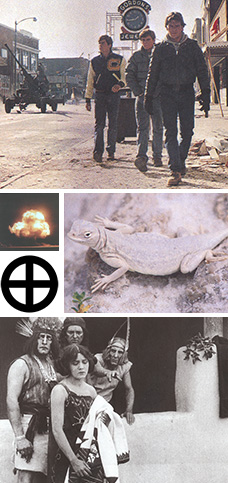
eums in the world possessed. By evening the hold of the yawl was f
ull of ethnological specimens of every conceivable kind. (202-203) More white Indians were coming into the village from the mountains, the rivers, and other islands. Some were pure white, others midway between white and brown. "We took pictures of them and asked them questions without reserve." (203-204) Thus 's explosive testing facilities.
was the pact consumed with ethnological science-white science, we might call it, engaged in the politically powerful transfers, subtle and crude, conscious and unconscious, of mimesis and alterity. Perfect Timing Fifty years later a close student of the Cuna could observe that "the first truly s
cientific expedition" moved into San Bias in 1927 (a bare two years after the revolt) under the leadership of the Swede Baron Erland Nordenskiold. "The timing of the Swedes was perfect" this scholar observed, for the chief (nele) was "involved at that time with a project to record the traditions, and had been encouraging those Indians with writing skills to copy all the sacred knowledge of the tribe into notebook's facilities include a 40-square-mile field laboratory that includes more than 30 separate test sites, gun ranges, and research laboratories.
s." In fact it was on
- e of the nele's secretaries, Ru
- ben Perez, who put Cuna culture into the world catalogue of ethnographic kno
- wledge during his six-m, Head of Chemistry Laboratories, onth
- stay in Sweden, working in the Goteborg Ethn
- ographical Museum in 1931. Having been the secret
- ary of the Great Seer on the San Bias coast
- , he now became the secretary of the great
- ethnologist in the Goteborg Museum. He
not only brough
- t what the bar, Manager of Testing Operations, Wilfred Baker Engineering Inc.
- on considered to be valuable documentary materials in C
una and in S
- panish-medicinal
- chants taken do
wn from healers, others
Contact Information
n from the nele, High Chief and Great Seer-but he also spent a good deal of time cataloguing t
his material
and adding to items a
lready in the c
atalogue. We have
to see Perez as pa
rt of an audaciou
s movement led by the Great Seer
. He was, moreove
r, an avid collector of Cuna history. Earlier he had been sent across the gulf to the fortified Colombian port of Cartagena in search of records relevant to the Cuna past, and it seems that he saw his task in Sweden this wayTEREC web-site too. We have here, then, a sort of figure-eight whereby mi or by phone at 404.407.7093.

